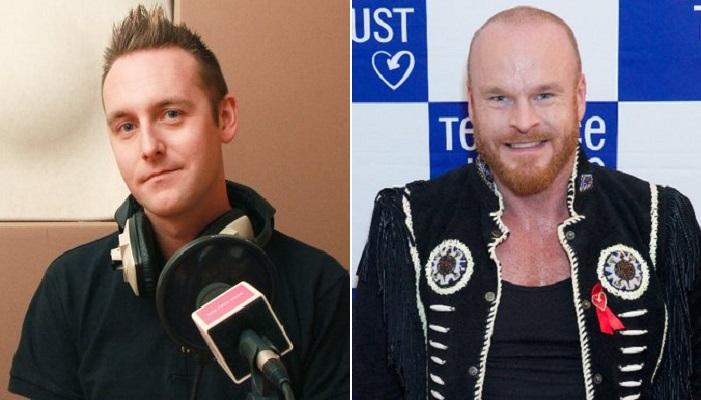‘This is uncharted territory’ – The truth about ageing and HIV
As a generation on anti-retro viral treatments continue to live longer, Stuart Miles investigates how men living with HIV manage ageing.
By Will Stroude

Recently I spoke to HIV positive men about how living with a permanent condition like HIV changes your attitude to ageing.
Ageing and HIV is a really big topic at the moment and in some ways it’s pretty remarkable we are even having this conversation in 2018. In the early days that simply wasn’t on the cards and it is a testament to how far the treatment of HIV has come.
I decided to find out more and along the way I uncovered some amazingly good news.
Firstly I spoke to Tom Hayes who runs the online magazine Beyond Positive. Tom was put on treatment within a month of being diagnosed with HIV and has been on it ever since.
“HIV drugs are incredibly powerful they are designed to get into every part of your body, your blood, your muscles, your brain to combat the HIV wherever it is in your body.
“They are very very powerful drugs and you take them everyday for the rest of your life and they do build up over time and can have some nasty side effects. There’s 26 combinations you can be put on and the one I am on now is fine.

Tom Hayes is the editor of online HIV magazine Beyond Positive
“They have an impact on the body, whether it’s immediately or over the years.”
This is why right now we seem to be at a crossroads, as gay rights activist Philip Baldwin points out.
“We are seeing the first generation of people growing old on the anti-retro viral treatments for HIV,” he explains. “This is uncharted territory. What we don’t know is how the treatments will affect us after 30 years.”
Tom adds: “We’ve also got a second group who you wouldn’t think of as ageing with HIV and they are the people who are born with it. You might only be 20 but they have been on treatment for 20 years which is 3 times as long as me.”
What we do know so far is that medical professionals see certain conditions related to ageing appearing earlier amongst those with HIV. These are things such as neuro cognitive conditions like dementia, issues around pain, both joint and muscle and also skin conditions.
You may be surprised to learn this but you might be even more surprised to learn that ironically even though those with HIV are ageing faster, they often live longer than the general population!

Stuart Miles is the founder of milesyounger.com
Indeed, the average person diagnosed today is expected to live as long as someone who doesn’t have HIV.
So how is this happening and what is going on? Tom Hayes explained.
“People with HIV are being checked and encouraged to look after themselves better.
“The average man doesn’t go to the Doctors whereas an HIV man will go 3 times a year, they get a full blood work up, health check and MOT. So, doctors pick up the slightest issue even before it’s a problem.”
I think that is remarkable and a reminder to those of us without a long-term condition to not take our health for granted.
With a longer life comes other issues and one that affects many of the older generation, that of loneliness can have an even greater impact on those with HIV. For example, those diagnosed in the 80’s or 90’s may have had whole friendship groups simply wiped out.
As Philip Baldwin says, support is available.

Philip Christopher Baldwin is a leading LGBT and HIV activist
“A number of the charities have set up support groups specifically aimed at older groups of people suffering from HIV. The Terrance Higgins trust has a group called the silver surfers who meet to watch films. It’s great news that this type of support is available”, he says.
It may seem less important but just because you have a long-term condition like HIV doesn’t mean you don’t want to look your best at all times and Tom Hayes agrees some stigma still exists.
“Most people don’t share their HIV condition with the whole world like I do because it’s still fairly stigmatised even in 2018. You still get people saying you don’t look like you have HIV…that’s still a hang up for people.”
It seems to me that any diagnosis of a long-term condition will make us re-evaluate our lives and our health. That feeling that we are no longer invincible brings with it a new-found desire to look after ourselves more, think about what we are eating and drinking and work out what is really important, thus reducing unwanted stress in our lives.
These are many of the keys to ageing well and this new generation of men diagnosed with HIV are unlocking them to live long, healthy and extremely happy lives.
“Take care of yourself now, love yourself and do what makes you feel good”.
You can hear the full interview on HIV and Ageing as part of Stuart’s ‘How to Age Well’ podcast series.
Stuart Miles is the founder of MilesYounger.com and the UK’s leading ageing expert. Follow him on Twitter @mrmilesyounger.
